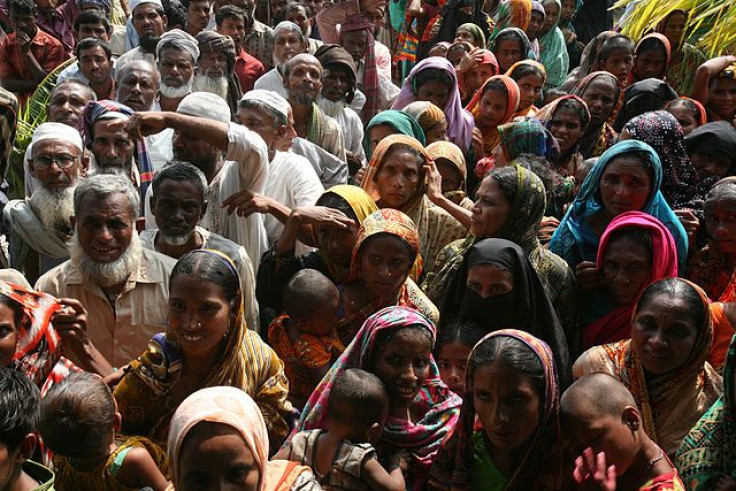Climate Change May Affect Children The Most: How Future Floods And Droughts Could Contribute To Malnutrition

Hundreds of scientists who met in Sweden today to assess and report on climate change are expected to warn of an increase in droughts, floods, and storms, the Guardian reports. Their research may also suggest that children, who are at an increased risk of suffering health problems, malnutrition, and migration, will be most affected by climate change over the next few decades.
Summary for Policymakers
The Intergovernmental Panel on Climate Change (IPCC) will be meeting in Stockholm over the next five days to finalize a report assessing the evidence for climate change and its causes. The meeting, which is sponsored by the Swedish government, is a culmination of four years of work by hundreds of experts in the hopes of producing a comprehensive assessment.
“The scientific evidence for anthropogenic climate change has strengthened year by year, leaving fewer uncertainties about the serious consequences of inaction, despite the fact that there remain knowledge gaps and uncertainties in some areas of climate science,” Qin Dahe, co-chair of IPCC Working Group I, stated in a press release.
The full report will include a technical summary, 14 chapters, and several annexes, as well as an atlas of global and regional climate projections. A total of 259 authors and review editors were selected to produce the report, and they relied on help from more than 600 contributing authors. Parts of the whole will deal with the physical science basis of climate change, the impacts relating to climate change, and the mitigation of climate change.
What are their predictions?
“Our assessment draws on millions of measurements which permit an unprecedented and unbiased view of the state of the Earth System,” Thomas Stocker, the other co-chair of Working Group I, stated in a press release. “Millions of billions of bytes of numerical data form the foundation for estimates of possible futures of our climate.”
According to the Guardian, the Summary for Policymakers will likely state that climate change is almost certainly caused by human actions, and that the rise in global temperatures will top 2 degrees centigrade. Resulting effects from this increased heat include the shrinking of the Arctic ice cap and glaciers, a rise in sea level by nearly one meter by the end of this century, and more extreme rainfall in some areas of the world. Among the 10 most vulnerable countries are Bangladesh, India, and the Philippines.
Currently, in the 10 most vulnerable countries, there are 620 million children under 18, while those who were born last year will come of age in 2030. Building out their data, the climate scientists suggest that by then, the effects of change in the form of an increase in droughts, floods, and storms will have begun to cause real problems and impinge on water and food sources.
UNICEF and the IPCC estimate a climate change horror that includes heat waves, which will cause babies and small children to die from or suffer heat stroke, malnourishment, food insecurity, and more.



























